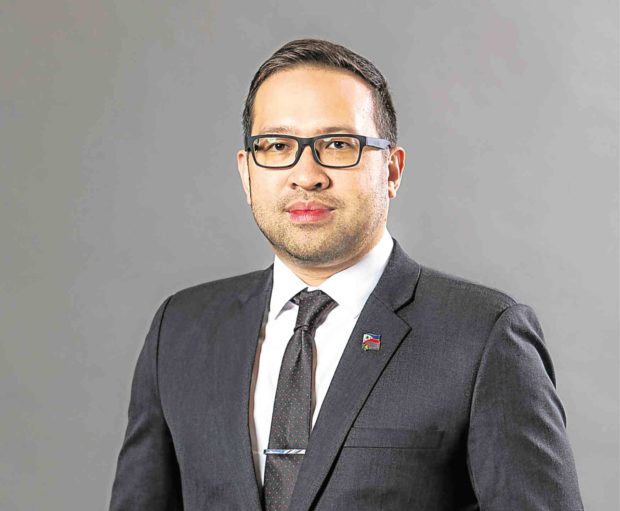Richard Sanz is founder and CEO of Food Asia, owner of Bibingkinitan, seller of Filipino rice cakes topped with salted duck egg and cheddar cheese, which now has over 200 stores nationwide.
In 2009, Sanz won the Mansmith Young Market Masters Awards, and is now President of the Philippine Franchising Association, which will have its annual convention and exhibit on July 18-22, 2018 at SMX Manila.
He shares here his experience with franchising.
Q: Bibingkinitan was launched as a novelty in 2006. What did you do to ensure it had a good fighting chance against more established Western snack foods?
A: When I launched Bibingkinitan in 2006, everything I did was guerrilla marketing. But in hindsight, I believe the key was we made the product available in terms of time (every day, 365 days a year, instead of just during the Christmas season), and in terms of accessibility (200+ stores) by expanding rapidly, which took our competitors off guard.
Of course, it was a given that the product had to be superior and consistent against all our direct competitors at that time.
With regards to Western snack foods, our advantage is we knew the local terrain very well, we knew what the Filipino market wanted.
We discovered there was an empty space for sweet, moist, bite-sized ‘bibingka’ matched with nice and hot ‘barako’ coffee.
Q: How has Bibingkinitan evolved?
A: Bibingkinitan is now on its 12th year, and its product offerings have greatly evolved through the years.
[To target the] broad market segment, we have our classic bibingka product line with a price segment of below P25, which still comprises 75 percent of our total revenue.
Second, [we have] a product line that offers an even more premium quality, gourmet flavors, and a more generous serving that targets the “affordable luxury” segment. It is also a big help to our revenues by completing the remaining 25 percent.
Our store design and ambiance had also been upgraded to have a younger and premium feel compared to our designs from decades ago.
Lastly, since Bibingkinitan is based on a heritage Filipino product which is bibingka, we had to make the brand feel young, energetic, and relevant to millennials by having a strong digital and online presence, and having products and stores that are “instagrammable.”
Q: How many of your Bibingkinitan stores are franchised? What is the recommended ratio, and why?
A: Our target is 70 percent company-owned and 30 percent franchised. This is the ideal ratio for Bibingkinitan’s very specific type of small-format business, which requires that half of the products be prepared and baked fresh onsite.
There is no recommended ratio because each franchise company has a different business model and purpose. Some companies are franchise-driven with only less than 5 percent of total stores company-owned. Some are 50-50.
Q: Bibingkinitan has won various awards, including one for outstanding franchise support. What should a franchisee expect from a good franchisor?
A: The primary reason why people franchise is to earn money. So the most important thing is franchisees earn money and are happy because that’s the primary reason. Therefore, a good franchisor would focus its support on enabling the franchisee to make money. This includes providing the proper training, having a great and consistent product, having good marketing support for marketing materials or promotions, to name a few.
Q: When should a company franchise its business?
A: I can cite three prerequisites: 1. When the company-owned store is earning a decent profit; 2. When the company has at least three stores; and 3. When the company has operated for at least one year to determine seasonality trends.
[I believe] franchising is like a multiplier.
If the company-owned stores are earning, then there is a good chance that franchised stores will also profit. However, if a franchise company is problematic and is not profitable, it will only multiply the failures and problems.
Q: Assuming a franchisee is diligent in managing a franchise, what is the recommended minimum return on investment a franchisee should expect?
A: It depends on the investment. Acceptable ROIs for lower investments such as less than a million pesos are usually one year to 1.5 years. However, for franchises with a higher investment such as P3 million or above, ROI usually ranges from three to five years. That’s the reason also why franchises with bigger investments have longer contract terms, to allow the franchisee more time to achieve the ROI.
